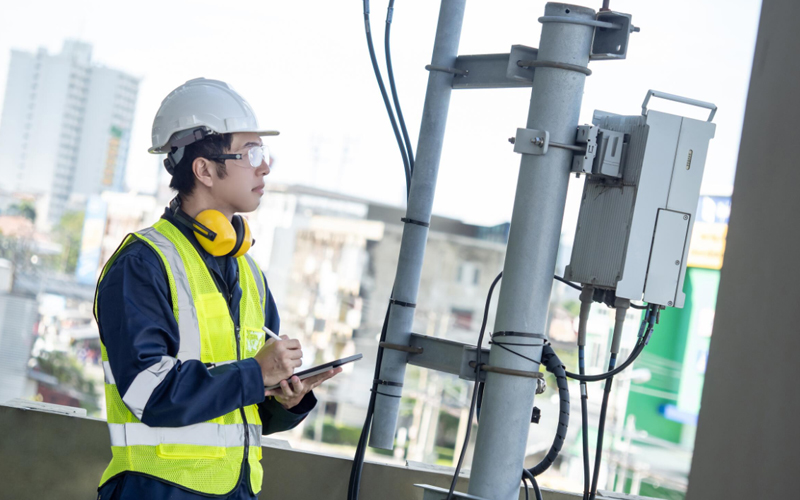Even as all major businesses embrace generative AI, the technology is evolving faster than business operations can leverage it. Another such development is the improvements in adaptive AI mdoels. Adaptive AI systems alter their code to adjust to real-world changes without human intervention. They can modify the code to suit the circumstances that did not originally exist, giving the system an unprecedented capability to adapt to market disruptions.
According to a leading management consulting company, by 2026, businesses that adopt adaptive AI will outperform their peers by 25% in the efficiency of implementing artificial intelligence models.
This article explains the concept of adaptive AI for BPM, its comparison to generative AI, its benefits for businesses and key applications.
Adaptive AI vs. generative AI
Adaptive AI leverages advanced machine learning algorithms with a flexible approach to respond instantly to sudden changes in the market. This feature brings unprecedented benefits for businesses such as:
- Faster decision-making
- Higher efficiency
- Automation
- Continuous learning
Predict market trends, customer behaviours, and possible supply chain disruptions accurately by transforming the decision-making process into a strategic powerhouse.
Make your business operations leaner, faster, and cost-effective through rule-based processes.
Simplify data-intensive projects with precision and speed by automating complex tasks.
Adaptive AI learns from new data, identifies trends, and changes its algorithms to stay ahead of the game. For example, it can learn from customer interactions and fine-tune its responses for a personalised experience.
Generative AI excels in creating new ideas and products by learning from existing data. These new ideas and products could include images, software, music, audio, video, and characters. Here is a tabular comparison of adaptive and generative AI.
|
Adaptive AI |
Generative AI |
Purpose |
Learns from the data and experiences and adapts to the current requirement. |
Creates content with a human-like precision based on patterns it learns. |
Learning |
Continuous learning and adapting from data. |
Content generation is based on the learning patterns and structures within the data. |
Primary applications |
Decision support, predictive analytics, and optimisation. |
Text creation, content generation, and other creative fields. |
Output |
Data-driven insights, optimisations, and predictions. |
Creatives such as text, images, audio, video, etc. |
Human interaction |
Assists in data-driven decision-making. |
Enhances human creativity. |
Examples |
Predictive models and recommendation systems. |
Content generators and language models. |
Industry applications |
Investing, Finance, healthcare, cybersecurity, and supply chain. |
Marketing, design, and entertainment. |
Benefits of adaptive AI in BPM
Adaptive AI and BPM integration drives automation, reduces errors, and improves process accuracy. You can automate repetitive tasks, allowing your staff to focus on strategic roles. Here is a summary of the benefits of integrating adaptive AI with BPM:
Automate repetitive tasks
Delegate mundane and repetitive tasks to machines and allow your staff to focus on strategic and value-added tasks. The tasks you can automate include invoice processing, data entry, document processing, report generation, data validation, and handling customer inquiries. Businesses can leverage Robotic Process Automation (RPA) to eliminate manual errors, reduce effort, and accelerate execution.
Intelligent decision making
Analyse vast amounts of data to make better and more intelligent decisions that would otherwise be impossible. Identify patterns and trends and extract meaningful insights from data sets. Integrate AI and BPM to optimise workflows, allocate resources, and identify bottlenecks.
Enhance customer experience
Personalise interactions and improve the response speed using chatbots powered by Natural Language Processing (NLP) to enhance customer experience. NLP-powered chatbots capable of human-like interactions are virtual assistants that understand a customer’s query and provide information based on pre-defined rules. You can deploy these chatbots on websites, mobile apps, and messaging platforms to engage with customers in real time. NLP chatbots analyse customer behaviour to drive loyalty and engagement.
Optimise processes
Leverage AI tools to identify inefficiencies and bottlenecks and achieve process optimisation. Streamline processes, reduce cycle times, and eliminate unnecessary delays in the process to deliver superior outcomes.
Risk management and compliance
Manage risk and compliance within the business by detecting anomalies and flagging deviations from the normal. Adaptive AI helps in the case of fraud detection, compliance and cybersecurity. You can automate risk assessment and mitigation by enforcing compliance standards.
How can Infosys BPM help with adopting adaptive AI systems?
The end-to-end BPM service addresses critical business functions by leveraging AI, RPA, and analytics to help industries such as investing, finance and accounting, customer service, business transformation, legal process, human resources, and more.
Read more about adaptive AI and BPM services at Infosys BPM.








